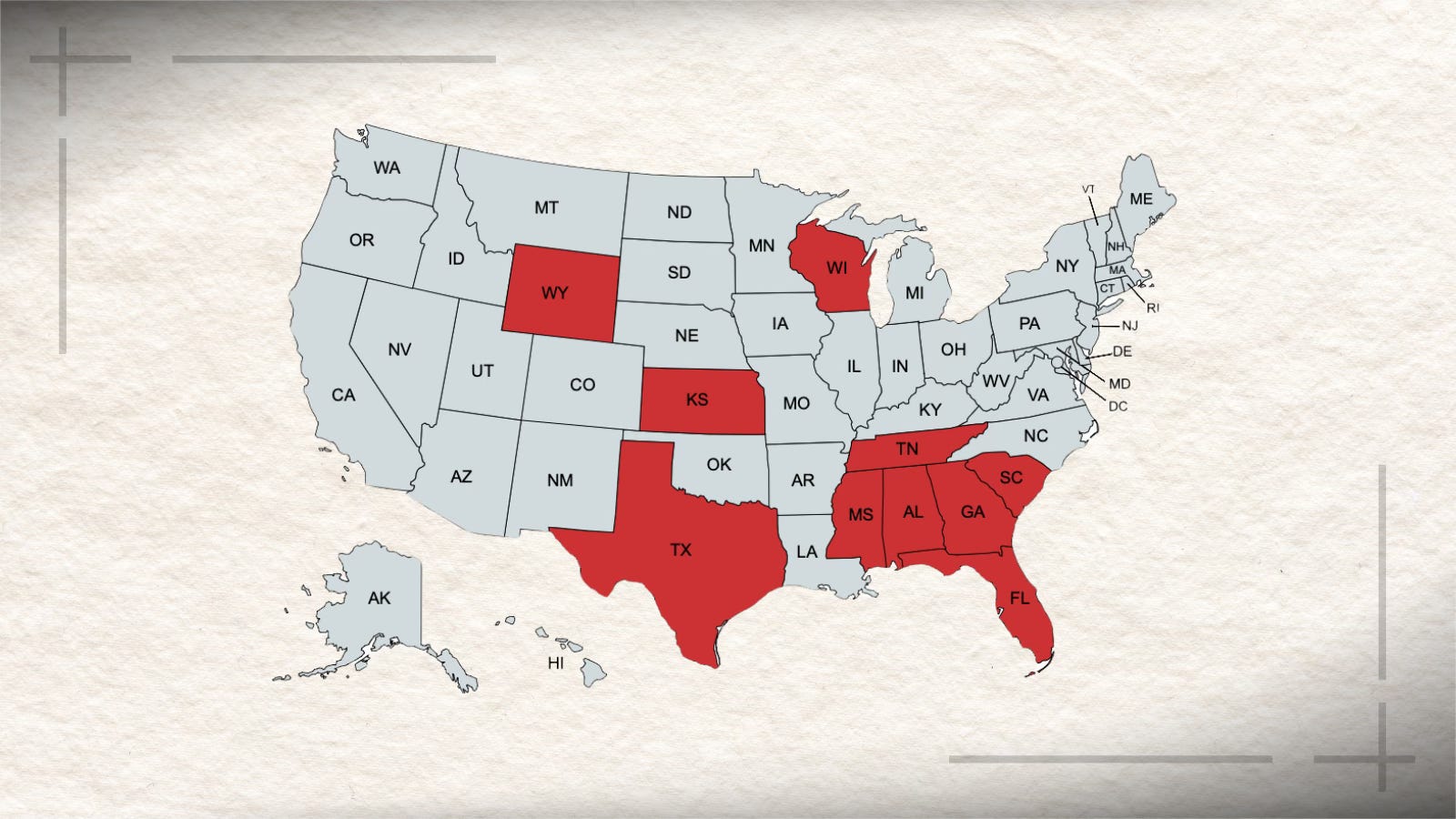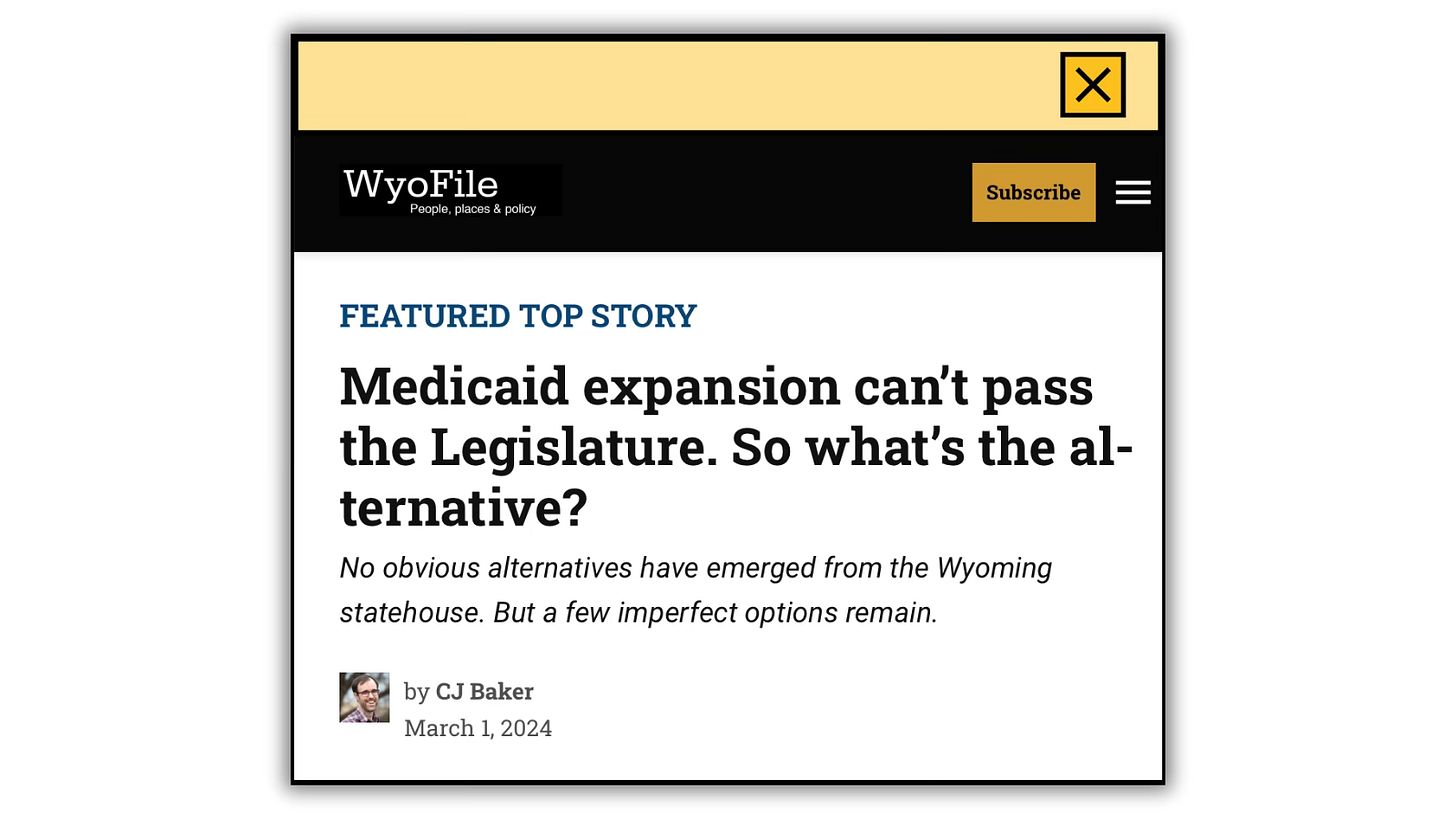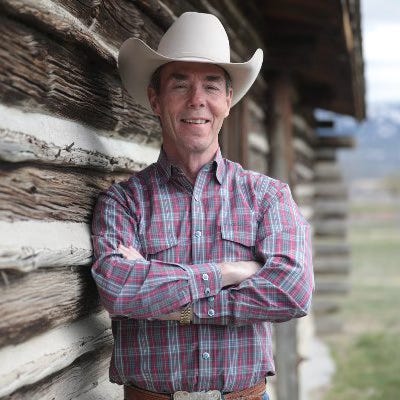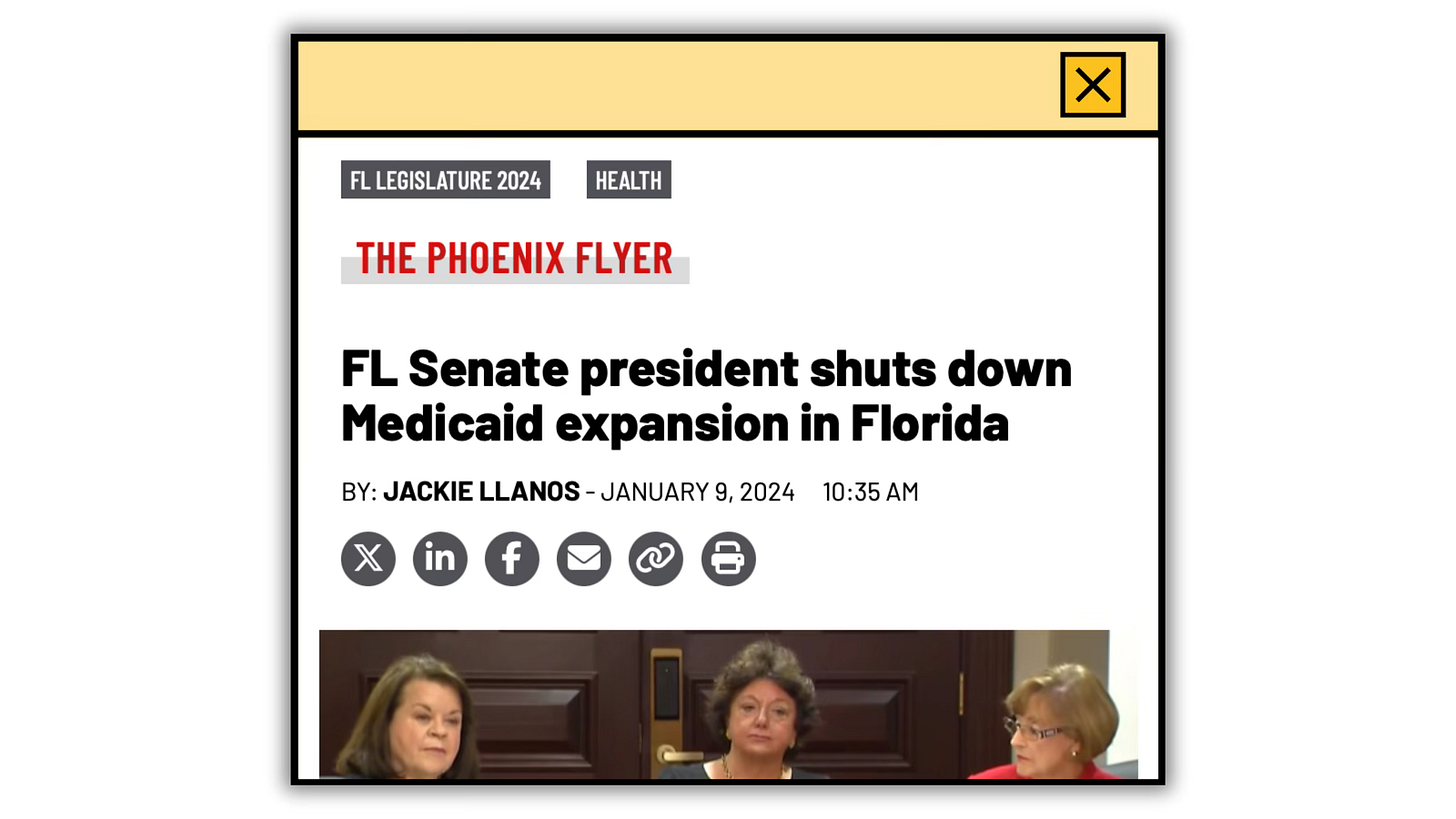Ten States Have Held Out on Medicaid Expansion. It's Left Millions of Americans Without Health Coverage.
The best health care story I have read in a very long time popped up on my computer recently with the intriguing, if somewhat ominous title, “Medicaid expansion can’t pass the Legislature. So what’s the alternative?”
The story wasn’t published in The New York Times or KFF Health News but by WyoFile, an independent, public-interest, member-supported online news service. The writer, CJ Baker, deserves a huge shoutout for unraveling the intricacies of the Medicaid program while recounting the sad story of some 11,400 Wyomingites who are not eligible for health care under the Affordable Care Act (ACA), but are too poor to buy health insurance on their own, often going without necessary medical care.
They are in the so-called coverage gap, which means their incomes are above their state’s eligibility for Medicaid but below the poverty level, which makes them ineligible to receive subsidies in the ACA marketplaces. Some 1.5 million poor Americans fall into that gap. In 2012, when the Supreme Court upheld the ACA, popularly known as Obamacare, it left it to the states to decide if they wanted to provide health coverage to some of their poorest residents. Ten states have not passed the legislation that would entitle those residents to the health care protection that Americans with similarly low incomes in 40 states can receive. Those in the coverage gap have few medical options, and Baker tells the story of their struggles in Wyoming.
Besides Wyoming, holdouts include Kansas, Texas, Tennessee, Mississippi, Alabama, Georgia, South Carolina, Wisconsin and Florida – all of the Southern states – except Kentucky, Louisiana and North Carolina.
There is little hope those holdout states will join the rest any time soon. In Wyoming expansion prospects are bleak. “The odds are lower than they were before. More conservative people pushed out more moderate people in the legislature,” Baker told me. “There’s not much dialogue about health care costs. Property tax relief is dominating the discussion. The legislature has moved further to the right.”
Last winter when expansion was debated yet again, Bob Ide, a state senator representing Casper, Wyoming’s second largest city, described Medicaid as “essentially socialized medicine,” adding that partnering with the federal government “hasn’t worked out. We need to work on helping the people in other ways than this.”
Another legislator, who supported Medicaid expansion, argued that the state treats the 11,400 people, who are some of the poorest, as “a statistic that’s too small to write policy for.” Still another legislator argued that those in the gap “choose not to work hard enough,” suggesting others in the gap “opted to retire early” and, “I have limited sympathy for that.”
Of those 11,400, 56% are working, which challenges the conventional wisdom that people in the gap are lazy and unworthy of health insurance. “A lot of them do work at least part time, but it’s just not enough,” one outgoing clinic director told Baker who reported that while the uninsured are often referred to charity care programs and discount health clinics, some people in sparsely populated areas with few resources may get little help.
I have written versions of this story several times over the years and never have I come away pessimistic. It’s possible some of the holdout states may not offer insurance to their remaining uninsured residents for a long time, if ever, unless forced by national legislative action. I checked in with three of those states: Tennessee with some 95,000 residents in the gap and eligible for coverage, Texas with 726,000, and Florida with 315,000.
In Tennessee, I interviewed Michele Johnson, executive director and co-founder of the Tennessee Justice Center, who told me, “I have no sense we want to solve the problem. It’s short-sighted and the political interests are not interested in the well-being of Tennesseans. They won’t even have a conversation about it in the legislature. They are clueless about the people in the coverage gap, or they devalue them.”
Texas, which has the largest number of residents in the gap, still denies them health coverage despite public pressure and advocacy from groups like The Episcopal Health Foundation. “In 2024 more than 3.4 million Texans signed up for health insurance through the Affordable Care Act,” said Brian Sasser, chief communication officer for the foundation. “It shows Texans will get health insurance when it’s affordable.”
In Florida, Medicaid expansion failed again this year. As the new session began, Republican state Sen. Kathleen Passidomo, president of the Senate, announced that her Live Healthy legislation would not include Medicaid expansion. “I’m not going to spend the next 60 days relitigating Medicaid expansion,” she said. “I understand the arguments both for and against. We have had the debate several times over the last decade. Medicaid expansion is not going to happen. It is not a quick fix. It is not a panacea.” The more than 300,000 Floridians caught in the coverage gap might disagree.
Many Floridians see it differently. In late March a poll taken by the firm Mason-Dixon Polling & Strategy found that 76% of Florida registered voters support expanding Medicaid in the state. Only 14% opposed and 10% were undecided.
Dr. Martin Luther King Jr., speaking to the Medical Committee for Human Rights 58 years ago, told the group of doctors trying to bring health care to Mississippi that “of all the forms of inequality, injustice in health care is the most shocking and inhumane.”
America has come a long way since King’s address, but the health care injustice he recognized long ago is still alive and well in most Southern states, including Mississippi, and in Wyoming and Kansas, where legislators continue to refuse federal funds that would cover almost all of the costs of health care for their poorest residents.










It’s pretty amazing that those 10 states are continuing to leave Billions of federal dollars on the table in order to make a political point: 90% of expansion funding is provided by the federal government. Therefore, the 10 non-expansion states are cross-subsidizing the 40 expansion states in a big way. Go figure! Connecting funded healthcare access to employment with tax advantaged funds is an accident of WWII history & highly dysfunctional from a societal point of view. No other country does it this way. Refusal to expand Medicaid is just a surrogate for ongoing institutionalized racism. Just look at the map!!
this is so very sad. we are a "wealthy" country but the middle class is shrinking and all those people struggling just to survive don't seem to matter to most of the 1% or whatever that percentage is. and wealthy companies only think of their bottom lines and the stockholders.